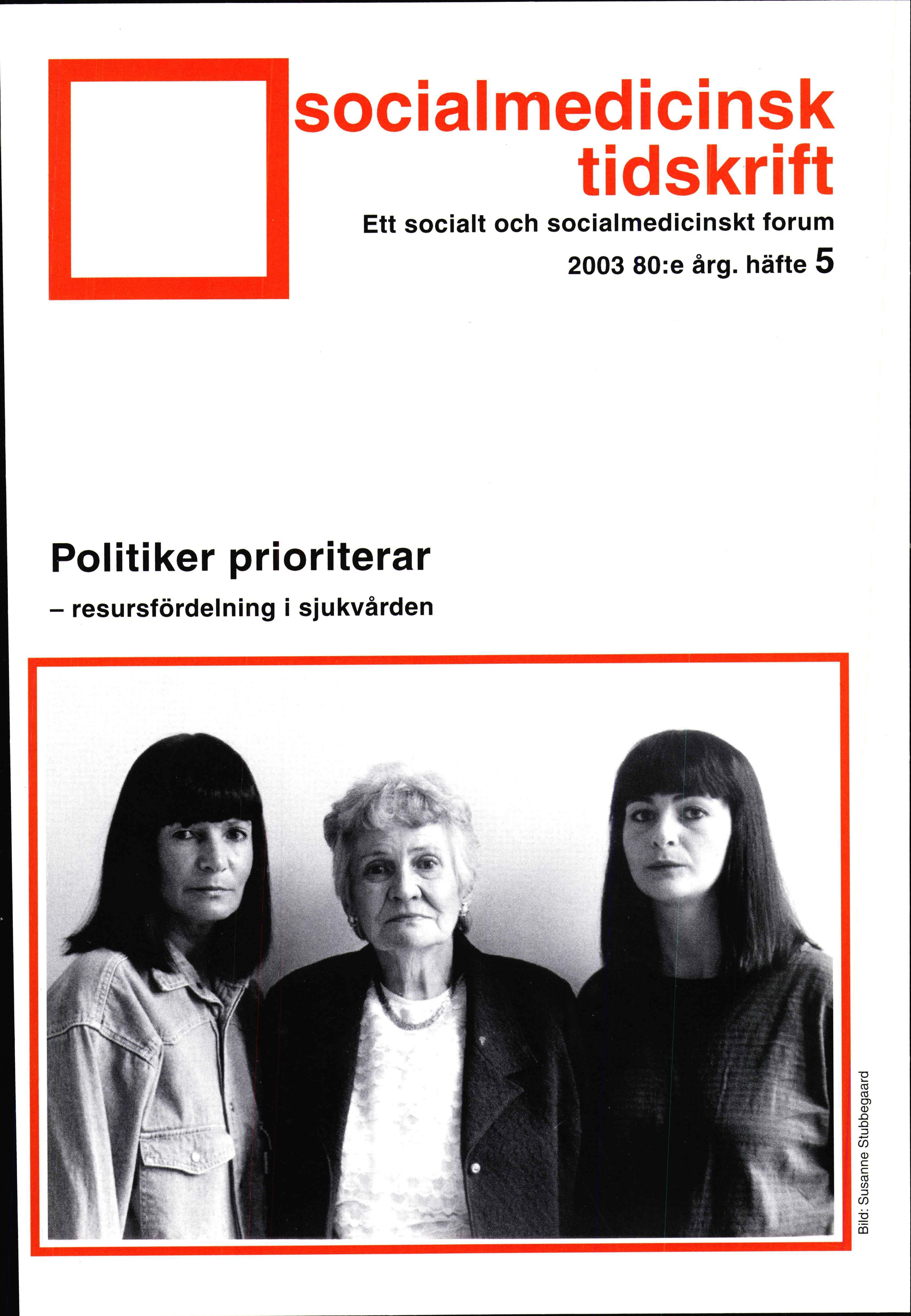Prioritysetting in Denmark
The introduction of new drugs
DOI:
https://doi.org/10.62607/smt.v80i5.26524Abstract
Based on two case-studies the underlying discourse for introducing and prioritizing hospital dispensed new drugs in Denmark is discussed. Focus in on the ongoing debate about the relative importance of clinical or economic arguments in the decision-making process. The two cases are Betainterferon for the secondary progressive stage of multiple sclerosis and Herceptin for breast cancer. The cases are of interest in their own right because they illustrate the dominance of documented clinical effects when making priority decisions, but they are also good examples of what can happen to the public decision-making agenda, when politicians not involved in the daily running of the health sector intervene. The importance of accumulating an empirical base for discussion of priority-setting is stressed.
Downloads
Publicerad
Referera så här
Nummer
Sektion
Licens
Författare till innehåll publicerat i SMT behåller upphovsrätten till sina verk.







